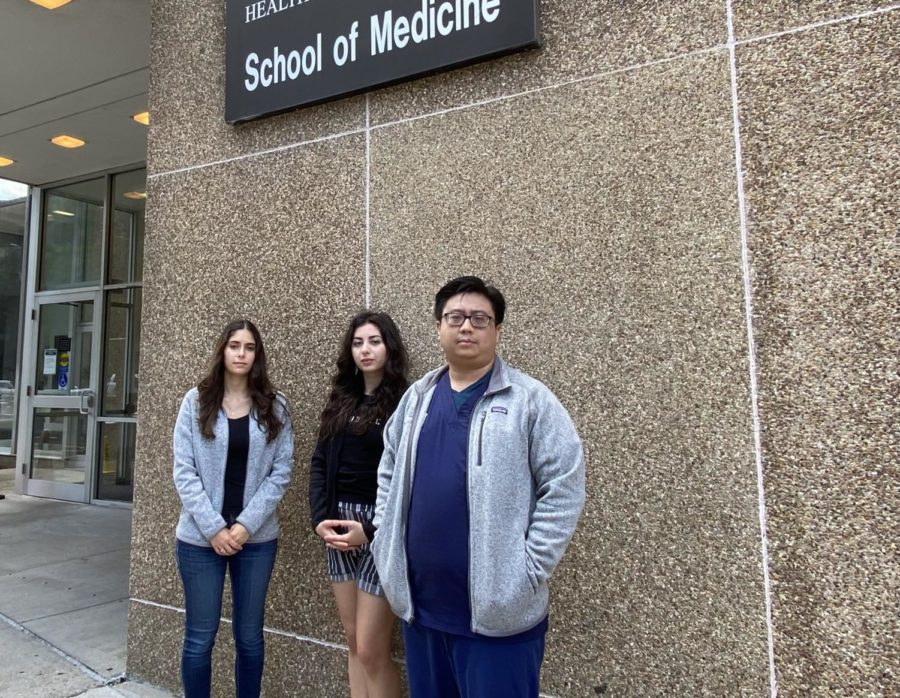‘Like walking on glass’: Anxious post-Roe era for Tulane’s Medical School
August 30, 2022

Dr. Cecilia Gambala was treating patients as usual one morning this summer, too busy to check her phone.
But she knew what was coming.
A nurse got the text: the U.S. Supreme Court had struck down Roe v. Wade, and a divided country was erupting in celebration and protest.
Now, just two months into the ruling’s jolt to medical systems nationwide, all Gambala and many at Tulane University’s School of Medicine have had time to do is keep working and remain careful as their concerns and questions stack up.
“It’s just like walking on glass,” Gambala, an assistant professor of obstetrics and gynecology at Tulane, said. “Just tiptoeing along, doing the best we can to provide care for our patients.”
For her, Louisiana is a worst-case scenario: a near-total ban with no exceptions for rape or incest. And the stakes are high. Prison sentences for doctors convicted of performing abortions in Louisiana reach up to 15 years.
A back-and-forth legal battle this summer has left the state’s law blocked and reinstated three times. Each time, Gambala paused. She studied the specifics. She reminded anxious colleagues that what they do is not criminal.
“I’m trying not to let it be very taxing,” she said. “I just go day by day.”
But the questions keep coming.
What does “medically futile” really mean?
How do you treat someone whose pregnancy threatens their life?
What is the future of her students’ education in a state that no longer holds many of their values?
Gambala does not know those answers yet. This is just the beginning, she said, and she is trying to make sense of it.
“This is going to be like this for a really long time,” she said. “You just have to do the best you can.”
Concern, confusion
Gambala’s biggest concern is patient care. She has already seen patients come in with early and non-viable pregnancies.
Cases like that might make seasoned providers think twice, Gambala said.
Abortion is illegal in Louisiana, unless the mother’s life is at risk or the fetus is “medically futile” — a term defined by 25 conditions the state released this month.
Louisiana’s three abortion clinics are currently closed and plan to relocate out-of-state.
At work, Gambala tries her best to soothe anxious colleagues. But she is still frustrated. She had to explain the decision and its implications to her two young daughters. Procedures she once understood as the best standard of care are being called into question by politicians.
She is thinking about her students too. Residents who shadow obstetrician-gynecologists at the clinic never guide decision-making, but they still feel the added pressure, she said. Other students are raising concerns about their future training — some could leave Louisiana to attend schools in states with more lenient laws.
“It’s affected their decision making,” Gambala said. “That’s going to be potentially harmful.”
Opportunities lost
Maya David was looking forward to attending the American College of Obstetricians and Gynecologists annual conference, slated for New Orleans next April.
But in May, the group cancelled, citing objections to Louisiana’s anti-abortion stance.
“I was so excited for it to be here,” David, a second-year medical student at Tulane, said. “And now they moved it to Baltimore. That was disappointing.”
It was an early sign of what many here fear: the state’s restrictive laws could hurt the local economy and its people.
Sarah Zagorski, communications director at Louisiana Right to Life, said many of those fears are exaggerated. Her focus is on helping Louisiana’s women, either with parenting decisions or adoption education. And she is hopeful the state’s new law will open doors for pro-life physicians.
“I would hope that they’ll be courageous at that time, knowing that the majority of Louisianians are on their side,” she said.
Zagorski said the law is clear and addresses elective abortion providers, so standard physicians should not worry.
“There’s nothing that’s going to put them in jeopardy,” she said.
Some students disagree and say they may leave Louisiana in favor of residency programs in different states.
“The fourth-year medical students who are going to apply to residency programs, depending on who you are, you might not want to apply to certain states anymore,” David said.
That was the case for Alana Carstens Yalom, a graduate of Tulane’s Medical School who opted to complete her OB-GYN residency in New Mexico. Once she thought she might return to Louisiana to work part-time as an abortion provider. Now, that has all changed.
“That feels really not like an option right now,” she said.
Brian Le, a second-year student who spent eight years as an intensive care unit nurse, is almost sure he will choose out-of-state for his residency too. He wants the best training he can get — and with fluctuating laws, he is not sure that will be here. But it is also personal. He and his wife are concerned about pregnancy complications. If something happened here, he said, “her life would be in danger.”
Lingering questions
Stories like Le’s prompt another question: in Louisiana, will the doctors keep coming?
A recent Washington Post report found doctors across practices are turning down offers from conservative states. Abortion providers are rushing to relocate. In Louisiana, 25 parishes lack an OB-GYN and nurse midwife.
Gambala said medical education at Tulane will not change, but she thinks the law will affect the students, residents and physicians who choose Tulane in the future.
That makes Eva Kruger, a second-year medical student and member of Medical Students for Choice, uneasy. Those losses would mean “many fewer mentors, that many fewer providers,” she said. She is focused on protecting abortion education in Louisiana and sending pro-choice medical students to lobby at the state capitol in the fall. But the worry remains.
“If we have to leave the state to go learn about these things, we’re not providing that care to our patients here,” Le said. “It’s kind of a brain drain in this region.”
“We already have such a shortage of primary care providers,” Carstens said. “If you don’t have providers who are wanting to live in these states, what is that going to do to our maternal morbidity and mortality?”
Those questions could take years to answer. But in her frustration and confusion, there is one mission Gambala clings to deeply — one she returned to on that day in June, and one she holds now.
Stay calm. Provide care.
“This is what we do,” she said.









Leave a Comment